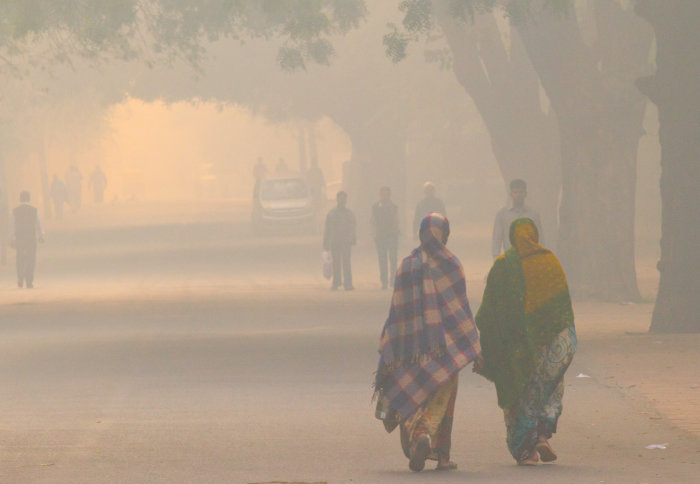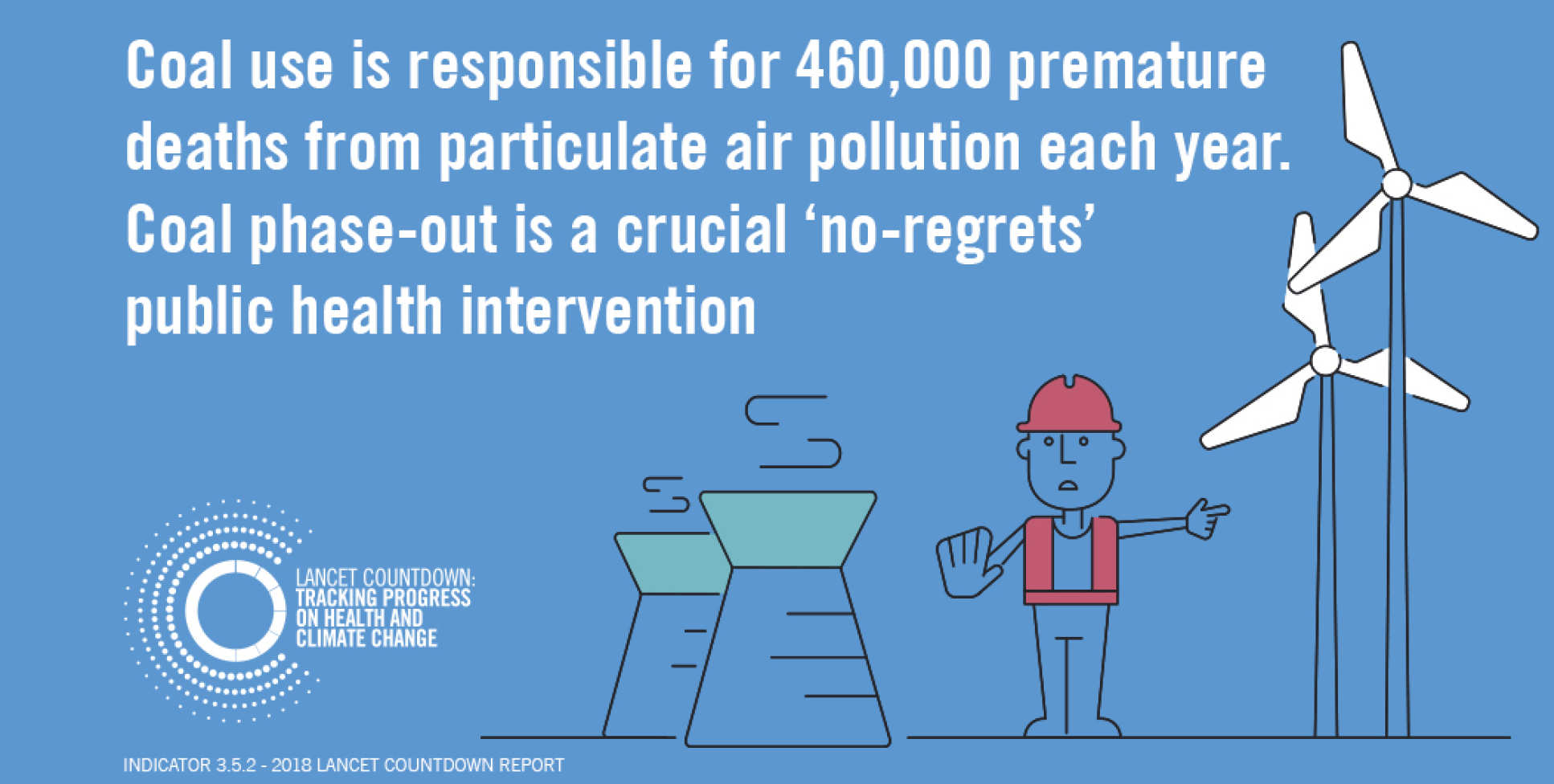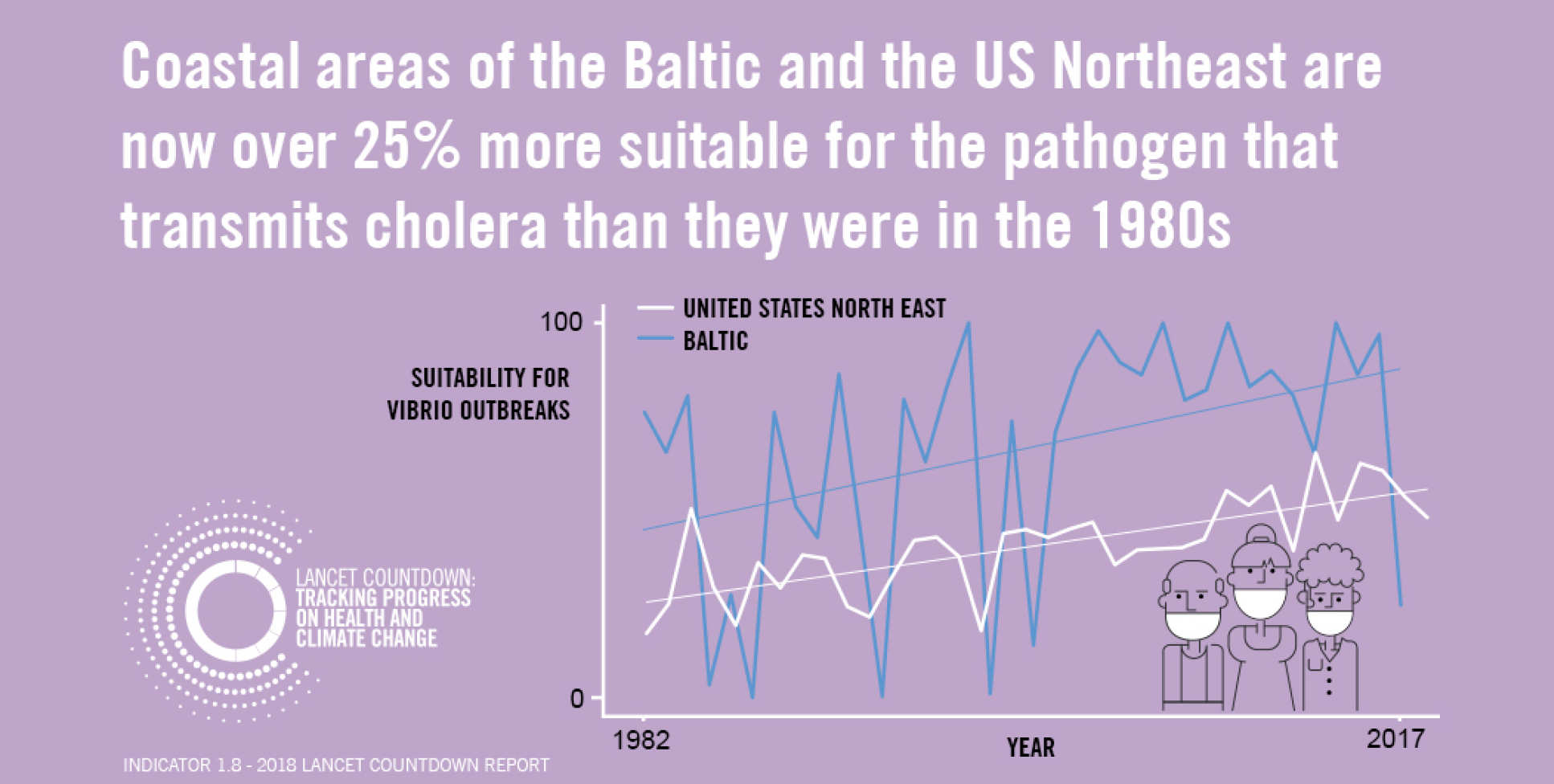5 ways climate change is bad for your health
by Simon Levey

How the changing global climate is impacting health
Watch out for the tropical diseases already spreading to Europe, United States and Australia.
Medical experts from 27 institutions and inter-governmental organisations have warned about the risk to human health from heatwaves, infectious diseases, air pollution and malnutrition in a new wide-reaching international report. The report, published in the leading health journal The Lancet, is calling for urgent action to 'decarbonise' or cut greenhouse gas emissions in order to keep global warming below 1.5°C, as agreed by the Paris Accord of 2015.
The Lancet Countdown calls on governments, businesses and local and regional organisations and ordinary citizens, who all have the opportunity to improve health and wellbeing for themselves and future generations. The Countdown’s experts advise using lower-carbon alternatives to transport and heating, reducing high-carbon food like red meat, designing smart health-services and 'divesting' savings and investments from fossil fuel companies.
1. Increased heatwaves
 2018 saw unusually high temperatures affecting large areas of the?northern hemisphere, and nine of the ten warmest years have been recorded since 2005.?Around the world in 2017, there were 157 million more vulnerable people exposed to heatwaves compared with the year 2000. As a result of the increased heat, 153 billion hours of labour (3.2 billion weeks of work) were lost in 2017, this is an increase of more than 62 billion hours since 2000.
2018 saw unusually high temperatures affecting large areas of the?northern hemisphere, and nine of the ten warmest years have been recorded since 2005.?Around the world in 2017, there were 157 million more vulnerable people exposed to heatwaves compared with the year 2000. As a result of the increased heat, 153 billion hours of labour (3.2 billion weeks of work) were lost in 2017, this is an increase of more than 62 billion hours since 2000.
The report advises the Chinese government to take heed of working hours lost to heat because of its effect on health and economic productivity. In China, workers are paid high-temperature subsidies (HTSs) for each day in extreme heat, this cost is projected to reach 250 billion yuan per year in the 2030s, and increase to 1000 billion yuan per year in 2100.
Read more: Feeling the heat? So is our economy!
2. Unavoidable air pollution
Between 2010, and 2016, air pollution concentrations worsened in almost 70% of cities around the globe, particularly in low-income and middle-income countries. In 2015 alone, fine particulate matter (PM2.5) was responsible for 2.9 million premature deaths, with the burning of coal being directly attributable ;for more than 460 000 (16%) of these deaths.
Transport is responsible for many of the air pollution problems of urban areas, and levels are generally getting worse. The average person used 2% more road-transport fuel in 2015 than they did in 2013, and cycling comprises less than 10% of total journeys taken in three quarters of a global sample of cities.
Read more: Cycling is the healthiest way to get around cities 
3. Spreading tropical diseases
Global warming and changes in rainfall can affect the range and abundance of the mosquitoes Aedes aegypti and Aedes albopictus, which breed in pools of warm, stagnant water – such as cans, buckets, containers – and are responsible for transmitting diseases such as yellow fever, dengue fever and Zika virus. The Countdown reports that suitability for the transmission of dengue fever from both of these mosquitoes has been increasing in step with recent warming, and is now almost 10% higher than in the 1950s, with the report's authors sending a warning to health authorities in Brazil and Australia.
According to Dr Kris Murray, who leads the College’s contribution to the publication, "the fingerprints of increasing infectious disease risks due to recent climate change are already evident in many regions".
The United States' Northeast has had a 27% increase in the area of coastline suitable for the water-borne Vibrio bacteria, which causes illnesses including gastroenteritis, wound infections, cholera and septicaemia, in the 2010s compared with the 1980s, while the Baltic Sea region of Europe has seen a 24% increase.
Read more: Health impacts of climate change already felt today

4. Malnutrition and starvation
The increased risk and severity of devastating heavy rainfall, flooding, droughts and wildfires is starting to affect peoples' access to food, with the world's poorest being hardest hit. In 2017, a total of 712 extreme weather events resulted in US$326 billion in economic losses, almost triple the total losses of 2016. Already 30 countries have seen downward trends in agricultural yields, reversing a decades-long trend of improvement. Lake Chad, located in the Sahel region of Africa is shared by Cameroon, Chad, Niger and Nigeria. It was once one of the continent’s largest lakes but has decreased in size by 90% over the last 60 years as a result of overuse of water and extended drought.
In a briefing launched with the Countdown, the medical aid charity Médecins Sans Frontières (Doctors Without Borders) warned that in this region, wasting (acute malnutrition with muscle loss) and stunting (chronic malnutrition with impaired growth) are both the result of severe nutritional deficiencies and expose children to repeated illness, developmental challenges and risk of death.
Read more: Warning about climate change effects on Malawi's food security
5. Failure of health services
More than half of global cities surveyed by the Countdown expect climate change to seriously compromise public health infrastructure, either directly, with extremes of weather disrupting crucial services, or indirectly, through the overwhelming of existing services with increased burdens of disease. Only 55% of African countries meet International Health Regulation core requirements for preparedness for a multi-hazard public health emergency.
A lack of progress globally in reducing emissions and with few countries putting in place national policies or infrastructure to adapt to the environmental changes of global warming puts human life at risk, the report warns.
Read more: How does climate change affect the provision of healthcare? 
Wide-reaching transformation needed
Maintaining the global average temperature rise to well below 2°C necessitates wide-reaching transformations across all sectors of society, including power generation, transport, spatial infrastructure, food and agriculture, and the design of health systems. These transformations, in turn, offer ways to help tackle the root causes of the world’s greatest public health challenges.
Given that climate change is the biggest global health threat of the 21st century, the Lancet Countdown is a welcome message from the health profession on its central role in responding to this threat, and ensuring any response delivers the health benefits available.
Imperial College London leads on a wide range of inter-disciplinary work to meet some of the greatest challenges faced by society. With the Grantham Institute at the heart of climate change and environmental work, it drives forward discovery, converts innovations into applications, trains future leaders and communicates academic knowledge to businesses, industry and policymakers to help shape their decisions.
Read more about the climate change and environment work of Imperial College London in the Grantham Institute’s latest magazine: Outlook 2018-19.
[Image credit: BDphoto]
Article text (excluding photos or graphics) © Imperial College London.
Photos and graphics subject to third party copyright used with permission or © Imperial College London.
Reporter
Simon Levey
Communications Division